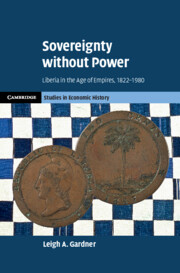Book contents
- Sovereignty without Power
- Cambridge Studies in Economic History
- Sovereignty without Power
- Copyright page
- Dedication
- Contents
- Figures
- Maps
- Tables
- Preface
- Acknowledgments
- 1 Reconstructing the Fragments
- Part I Foundations
- Part II The Art of Survival
- 4 Trade, Globalization, and Sovereignty
- 5 From Paper to Gold
- 6 The Costs of Foreign Capital
- 7 Financial Controls and Forced Labor
- Part III Sovereignty for Sale?
- Book part
- References
- Index
4 - Trade, Globalization, and Sovereignty
from Part II - The Art of Survival
Published online by Cambridge University Press: 27 October 2022
- Sovereignty without Power
- Cambridge Studies in Economic History
- Sovereignty without Power
- Copyright page
- Dedication
- Contents
- Figures
- Maps
- Tables
- Preface
- Acknowledgments
- 1 Reconstructing the Fragments
- Part I Foundations
- Part II The Art of Survival
- 4 Trade, Globalization, and Sovereignty
- 5 From Paper to Gold
- 6 The Costs of Foreign Capital
- 7 Financial Controls and Forced Labor
- Part III Sovereignty for Sale?
- Book part
- References
- Index
Summary
Liberia’s declaration of independence in 1847 was motivated in part by the Liberian government’s dependence on revenue from trade. Previous histories of Liberia have argued that there was a dramatic shift from protectionist policies in the nineteenth century to a policy of "open door" from the interwar period onward. This conclusion was based on the restriction of foreign trade to specific ports through so-called ports of entry laws dating back to the 1830s, and not abolished until 1931. There were also active debates among the Liberian elite about how protectionist Liberia should be in contemporary political discourse. This chapter uses new data on Liberian tariff rates to compare its trade policy to that of countries in Latin America and Asia. It finds that Liberia’s tariffs were somewhere between the protectionism of Latin America and the free trade policies of Asia, but closer to the latter. Despite rhetoric about the "closed door," trade was too important to the incomes of Liberian elites to restrict it.
- Type
- Chapter
- Information
- Sovereignty without PowerLiberia in the Age of Empires, 1822–1980, pp. 93 - 115Publisher: Cambridge University PressPrint publication year: 2022

